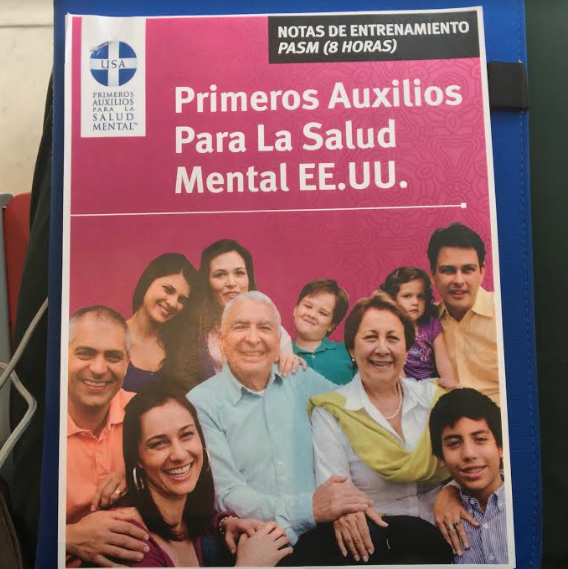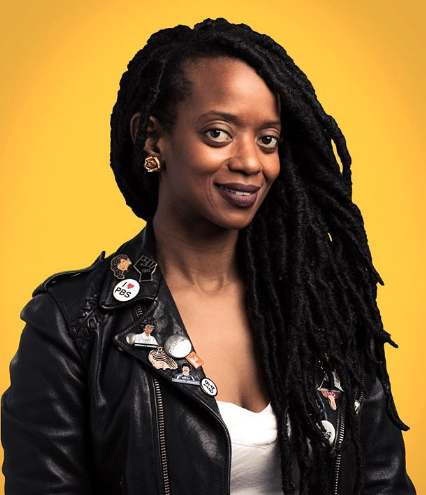I was a 17-year-old senior in high school the first time I was sexually abused. I say first time because unfortunately, it wasn’t the last. A male family member forced himself on me in the middle of the night in my aunt’s home, both of us silent because we were terrified of being caught, but for different reasons. I felt this was a shameful position to be in and a rapist being caught would interrupt what they’re doing. It’s been 9 years and I still remember what I told myself through that experience, “What are you going to do if you end up pregnant? No, just pretend like you aren’t here, like this isn’t happening. This isn’t happening.”
I would have to chant that to myself again repeatedly, 4 or 5 years later, on a hot and suffocating night in the Dominican Republic. Once again, in the silence of the night, shame visited me from another male family member that I thought I could trust with my life. I was clearly wrong. Embarrassment and guilt hit us both. I couldn’t believe that out of all people, this was the man that molested me. This family member spent the rest of his days, until he passed away, sending me large amounts of money, and calling to check on me so he could apologize profusely. The damage had been done and there wasn’t enough money in the world to buy me off.
Rape is like a grenade; explosive, shocking, injures and can kill. The abuse I endured affected those closest to me, also like a grenade. It was felt even if they didn’t know where it was coming from or why it was happening.
There are two things I learned from those horrendous moments:
1. Therapy would become the only anchor I could hold onto.
2. Hispanic families, specifically mine with its deep Dominican roots, would not be able to come to grips with my therapy nor with how to handle sexual abuse.
The aftermath to both situations left me shocked, disgusted with myself, broken, and with sexual hang-ups. I had nightmares where I’d wake up in a cold sweat. I’d see triggers on tv that would leave me spinning out of control for the rest of the day. If I stepped into an area filled with only men, I would begin to panic. I felt lonely and like no one understood. I was incredibly suicidal, and the pits of my despair felt endless. I was falling and lost. As far as I was concerned, therapy was a no-brainer.
I had very little money and no insurance (most of the time) but I needed to speak to someone, anyone who would listen to me. I was screaming but it felt like I was doing it underwater, quickly drowning, and no matter how loud I got, nobody could hear me. So, whatever money I had to spend to get help, that’s exactly what I did. If I didn’t have the money I’d beg them to let me pay later. That someone turned into 3 psychologists and 1 psychiatrist over the span of many years. I needed to hear the same thing from all of them and thankfully they delivered, even if I had a hard time swallowing what they had to say.
This shit isn’t your fault. This isn’t on you and there should be NO shame because the guilt is on the shoulders of your abusers. Do you get it? Are you hearing me? This. Isn’t. Your. Fault.
Therapy gave me back some sense of normalcy and helped me sort out the jumble of emotions that I couldn’t figure out alone. It validated, empowered, and allowed me to explain how abuse doesn’t happen in a vacuum and that my family’s response is one that ties into the bigger picture, which is my culture.
Photo Credit: Lars Leetaru
My family took this badly on all fronts. Their response made life a little more difficult. First, there was the issue of who I was going to tell and who could handle my truth. My mother is one of 10 children and my dad is one of 9. This doesn’t include the ridiculous amount of first cousins that exist and that I am close to. So yes, asking who should know what, is a legit question. My embarrassment did not allow me to tell my extended family, but I felt that at the very least, my immediate family should know.
That didn’t go well.
One of the first things I was told was to keep my mouth shut. “It will destroy and break this entire family.” So that’s what I did, I shut the hell up. The next thing said was “Why were you in this situation? What did you do to stop it?” In other words, this was clearly on me. I wish I could say this type of mentality was reserved just for me but no, this is so much bigger than what I suffered. Sexism, misogyny, toxic masculinity, machismo, and rape culture exist globally in one way or another (the patriarchy is still alive and thriving), but my goodness does it exist in Dominican culture.
I had a cousin, born in the US, who lived in the Dominican Republic for a few months and came home complaining, to my mother and my aunt (both native Dominicans), about how men treated her in the streets. Their responses to her, while shocking to most, was completely expected, “Men have been catcalling us since we were 12. It’s not a big deal. You get used to it. You can’t expect to change an entire culture overnight.”
With that mentality in mind, you come to realize why my family’s response was what it was. It didn’t help, to say the least. Even if I understood it within a larger cultural context, it still fueled my rage and my need to hurt others so they could feel my pain. So, if that was my family’s response to my abuse then let us all imagine together what their response to therapy would be.
Therapy in minority communities is stamped with a big, fat NO for the most part. The response was the same for my family that knew what I was secretly struggling with versus those who didn’t. “That’s for gringos. That’s not what our people do.” Which really leads me to wonder, how many in my family have struggled with their own abuse over the years and are taking it to their graves? How many have been the abusers? How many have known and looked the other way? I know I can’t be and am not the only one who has felt what I felt.
I don’t say any of this to talk negatively about my family or my people. I recognize their flaws and how we exist as individuals that make up a larger cycle. That cycle includes a rich culture that at times has a dirty underbelly. I just know I’m fighting a very layered issue both as a single person and with a group of people that I love but have been conditioned to think and act the way they do.
I’m still not 100 percent and I’m not ashamed to admit that. I still have a lot of healing to do. My quest includes continued therapy, no matter how many specialists and doctors it takes. Some people can see a therapist once and be okay. I know that for now, that isn’t something that is realistic for me. Maybe to some that sounds like a nightmare, having to spend so much of their life finding help, but from where I’m standing all I see is someone who is still fighting and healing. I haven’t given up. If every time I wake up I have to tell myself, “This wasn’t my fault” then that’s what I’ll do. My experiences with sexual abuse does not define me but I do plan on kicking its ass every single day if that’s what it takes to be released from these emotional chains.
CALL FOR SUBMISSIONS/PITCHES:
April is Stress Awareness Month and we want to hear your best ways of dealing with stressors, any precautionary tales of how they can affect the body, what your self-care looks like, and/or anything else related to acknowledging that stress is real and necessary to manage.
April is ALSO Sexual Assault Awareness Month. In light of recent events with sexual assault in the entertainment workplace being brought to the forefront and fully addressed, we want to address this issue taking place everywhere. We're accepting personal narratives, essays, poetry, prose, and any other type of writing that gets your point across about sexual assault. Because of the nature of the topic, we are willing to publish Anonymous pieces. We are accepting submissions & pitches from EVERYONE. We mention this because men and non-binary people have just as poignant voices and stories to tell about their own experiences but sometimes shy away from sharing due to toxic perceptions that hand out shame versus compassion. Our platform is a safe space for everyone so feel free to submit/pitch.
Please send all pitches/submissions to submissions@theextraordinarynegroes.com.
We look forward to hearing from you!


































